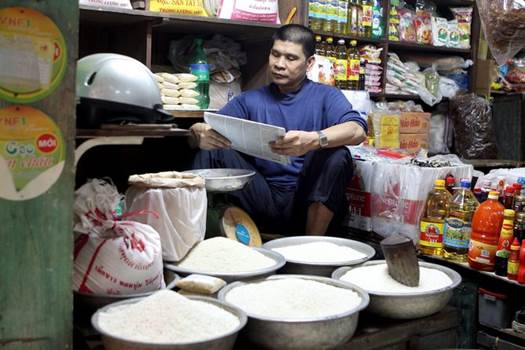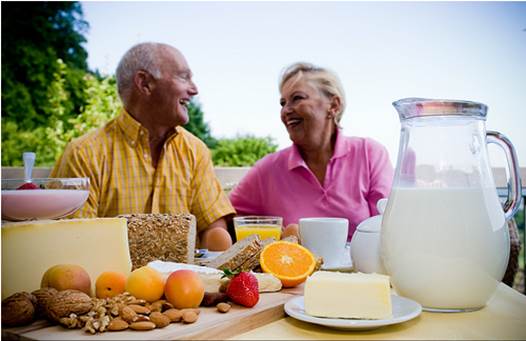You eat well, exercise and take your
multivista, but new research suggests you could be missing some of the biggest
risks to your future health.
What do you fear could be putting your
future health most at risk? Insisting on a natural tan? Popping painkillers at
the first hint of a headache? Friday-night cocktails? In fact, the latest
research suggests genuine threats to our long-term health lie in areas we
rarely give a second thought. According to experts, our skin colour, blood
group and where we live all paly a huge part, but as so few of us realise the
impact of these factors, we’re missing the chance to rewrite their effects.

You
eat well, exercise and take your multivista, but new research suggests you
could be missing some of the biggest risks to your future health
‘It’s very important to eat well and
exercise regularly particularly to feel good in the short term, but having an
awareness about these other risks gives you the inside track on long-term
disease prevention,’ says women’s health expert Marilyn Glenville. ‘You can’t
change your skin colour, your blood group or the town you’ve lived in for the
past 20 years, but by knowing the risks you face you can make all kinds of
lifestyle changes to protect yourself.’
Here’s how to arm yourself against the
three most surprising risks.
1. Your skin colour
The world of science has long debated
whether it’s your ethnicity itself that makes you more prone to certain
diseases, or the lifestyle that goes along with it. There’s no easy answer but
what is clear is that there are strong links between certain conditions and the
colour of your skin.
YOU HAVE: BLACK SKIN
Your risk: Breast cancer
Although black women are less likely to
develop breast cancer in the first place, when it does develop, the survival
rates are poorer, researchers say. Tumours are often more advanced when
discovered, and have spread to the lymph nodes.

Although
black women are less likely to develop breast cancer in the first place, when
it does develop, the survival rates are poorer, researchers say
Fight back:
‘The most important thing is early
diagnosis,’ says Kris Hallenga, founder of the breast cancer awareness charity
CoppaFeel! (coppafeel.org). ‘Familiarise yourself with what’s normal for your
books, and check for changes at least monthly. Decide a date that’s hard to
miss, maybe the first of the month, or pay day to do your check. That way, if
your doctor asks how long a lump’s been there you can say, “It’s been there for
33 days” and they’re much more likely to take action, rather than sending you
away and telling you to come back in two weeks.
“It’s not just about lumps and it’s not
just the boob area; check right up to your armpit and collarbone. Look for
lumps or bumps, skin texture changes, constant pain, and changes to your nipple
is it becoming inverted, is it crusting, is there discharge? The best place is
in the shower, think: shampoo, conditioner, boob check.’
YOU HAVE: ASIAN SKIN
Your risk: Type-2 diabetes
Nearly half of British Asians don’t realise
it but this group is at far greater risk of developing type-2 diabetes than the
general UK population. Pakistani women are five times as common for Bangladeshi
women; and for Indian women, the risk is two and a half times greater.

Nearly
half of British Asians don’t realise it but this group is at far greater risk
of developing type-2 diabetes than the general UK population
Fight back:
‘Generic factors increases the risk,’ says
Professor Kamlesh Khunti, professor of primary care at The Leicester Diabetes
Centre. ‘But while our genes haven’t changes for 50,000 years, the prevalence
of type-2 diabetes has increased dramatically in the last 30 or 40 years, so
that tells us that while genes play their part, our lifestyle has had a huge
impact and we’re in charge of that.’ Here’s what you can do:
·
Mix up your workout. A recent study found that people who did 30 minutes of weights five
days a week could reduce their risk of developing type-2 diabetes by up to 34%.
If they combined that with cardio, the figure rose to 59%. Aim to get your
pulse racing five times a week for around 60 minutes, whether that’s a brisk
walk, a circuits class, a light jog or even a spring clean.
·
Watch your waist.
Having a lot of fat in your abdomen, around your liver and pancreas,
increases your risk of diabetes. ‘South Asians are genetically predisposed to
abdominal obesity, so be aware of any weight gain around your middle’, says
Professor Khunti. ‘Aim not to exceed a 30 inch waist and try to limit saturated
fats and increase the fibre in your diet.
·
Take the test.
The Diabetes Risk Score questionnaire on the diabetes UK website
(diabetes.org.uk/riskscore) asks you to answer seven questions. It then tells
you whether you’re high risk and need a blood test, so it’s a good and simple
starting point.
YOU HAVE: WHITE SKIN
Your risk: Osteoporosis
White women are around 20% more likely to
develop the brittle bone disease osteoporosis than other ethnic groups because
white people’s bones are less dense.

White
women are around 20% more likely to develop the brittle bone disease
osteoporosis
Fight back:
·
Use it or lose it. ‘Improve bone density by including both weight bearing exercise
(think running, skipping, dancing, aerobics) with resistance work (press ups,
lifting weights)’, advises Marilyn.
·
Eat for healthy bones. Eat plenty of calcium rich foods, like milk, yoghurt, dried fruit,
sesame seeds, leafy green veg, tofu and sardines bones included which contain
the bone-strengthening combo of calcium and vitamin D.
‘Without vitamin D you can’t absorb
calcium, and around 25% of us are deficient in the UK’, says Marilyn. Order a
finger-prick test at naturalhealthpractice.com ($165.5) to find out your
levels. ‘It’s important to test because while it’s fine to take vitamin D
within a multivitamin, if you take too much on its own it could damage your
kidneys.’